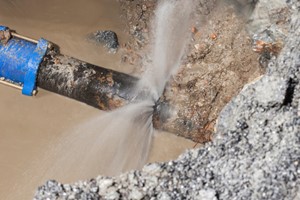The White House and the Environmental Protection Agency (EPA) have announced plans to allocate $2.6 billion from President Biden's infrastructure law to replace all lead drinking water pipes in the U.S. within the next decade. This initiative is part of a newly introduced EPA regulation aimed at addressing the health risks posed by lead in water.
Why this matters: Lead in drinking water became a national concern after the Flint, Michigan water crisis. Despite efforts to address the issue, the EPA estimates that up to 9 million homes and businesses still rely on lead-contaminated pipes for their water supply.
Lead from corroded pipes can harm childhood brain development, affect kidney function, damage cardiovascular health, and complicate pregnancies. "No level of lead exposure is safe," the White House emphasized, noting that historically, low-income communities and communities of color have been disproportionately affected by lead poisoning due to decades of inequitable infrastructure development.
Although the installation of new lead pipes was banned in 1986, millions of homes remain connected to older lead pipes that have yet to be replaced.
The announcement: The new rule strengthens ongoing efforts to locate lead pipes across the U.S. and enhances testing requirements for tap water. This $2.6 billion boost follows a previous $15 billion investment in lead pipe replacement, part of the $50 billion allocated for clean water initiatives in the 2021 infrastructure law. Nearly half of these funds are designated for disadvantaged communities, which have been disproportionately impacted by lead poisoning.
The broader impact: The EPA predicts significant health benefits from this initiative. Every year after the new Lead and Copper Rule Improvements are implemented, an estimated 900,000 infants will be protected from low birth weight, and up to 1,500 premature deaths from heart disease could be prevented.
EPA Administrator Michael Regan stated, "President Biden is the president who is finally putting an end to this generational public health crisis," adding that delivering a lead-free America is part of Biden’s legacy.
Challenges ahead: Despite the ambitious plan, some cities may face delays. Chicago, for instance, has 400,000 lead water lines and may take more than a decade to complete the replacements. According to the Natural Resources Defense Council’s Erik Olson, Chicago will need about 22 years to finish removing its lead pipes—an improvement over previous proposals that would have extended the timeline to 40 or 50 years.
President Biden is expected to formally announce the rule in Milwaukee, Wisconsin, where the city is currently working to replace approximately 65,000 residential lead service lines.
By Avery Lotz













